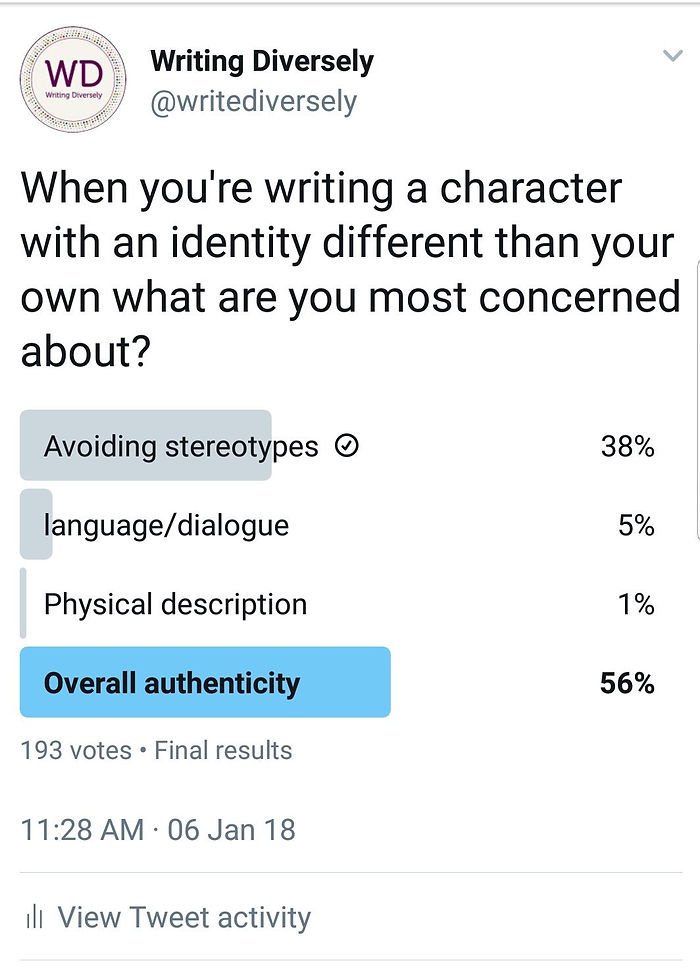Tips on Writing Authentic Characters
I conducted a poll on twitter (follow me!) to try to understand what authors are the most concerned about when they're writing characters outside of their own identities. More than half of the voters said "overall authenticity" concerned them the most so I want to address what authenticity is and what steps you can take to make sure your characters are authentic to your readers.
Authenticity is tricky, even if you share the same identity with your character, and even harder when you don't. This is for many reasons, the primary being it's hard to separate what media has shown us what's true of marginalized people and what's actually true for them and if you aren't a member of that group you're most likely relying on the media to fill in the gaps that your personal experiences, or lack their of, has left for you.
What you want is for the character to not to seem phony, you want the reader to not see the "seams" if you will, for the character to ring true.
How do you write an authentic character that is a different identity than your own and get it right?
Beware stereotypes. You think "I'm writing a gay teenager, what are gay teens like?" The first things that are likely to come to mind are stereotypes or tropes because those are the images we're fed from the mainstream. This is an easy trap to fall into because it's it's effortless, the images are ready made for us to grab. So how do you avoid this? The answer is actually simpler than you think, gay teens are like teenagers of any sexuality, however, there are particulars in their experiences that make them different.
Let's use friendship as an example:
Friendships are important to teenagers; all teenagers. Full stop. But how is your gay teen character's social life affected by their sexuality? Does their social circle include LGBTQ+ allies? Have they come out to their social network? What is dating or romance like for them?
It's important to to maintain the truth of the group (friends are important to teens) AND to simultaneously think of your character as an individual (have they come out to their social network).
Hire a sensitivity reader. This is the best thing you can do to help make sure your character makes sense to readers who identify with your character. A sensitivity reader should take in all facets of your character and gives your tips and suggestion and what makes sense based on their experience as a member of that group.
If your character fits into what my specialties are, hire me. If they don't check out this list.
Culture. The language, rituals/customs, beliefs, norms of a group of people. To make a character as authentic as possible you have to understand what their culture is if they were a real person. **If you're writing sci-fi or fantasy it's important to create a fully flushed out culture for your characters and be as true to that as possible. If you're basing a "new" culture on an existing group of people do your homework. Research, research, research.**
When thinking of culture it's important to be nuanced. I'll use myself as an example:
I'm African-American so if you were to write me as a fictional character and you researched African-American culture, that's great but you're not done. I'm not just black, I'm also a woman, a New Yorker, straight, Christian, and a millennial (we're not all terrible) and many other things. If you just researched one part of me you're eliminating the other facets of my identity so you're leaving out parts of my identity that influence the way I behave daily.
Create an identity chart for your character. What parts of themselves are influencing their decisions in your story? Familiarize that part of their identities
Thinking about why your characters behave the way they do and why they make certain decisions is important to writing a good book. The plot moves along because of the decisions your characters make. Be honest with yourself and what you know and don't know, do some research and ask for help, you'll create more authentic characters that way.


